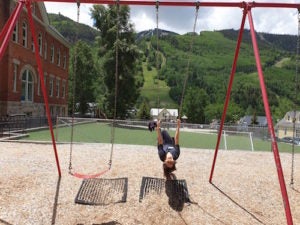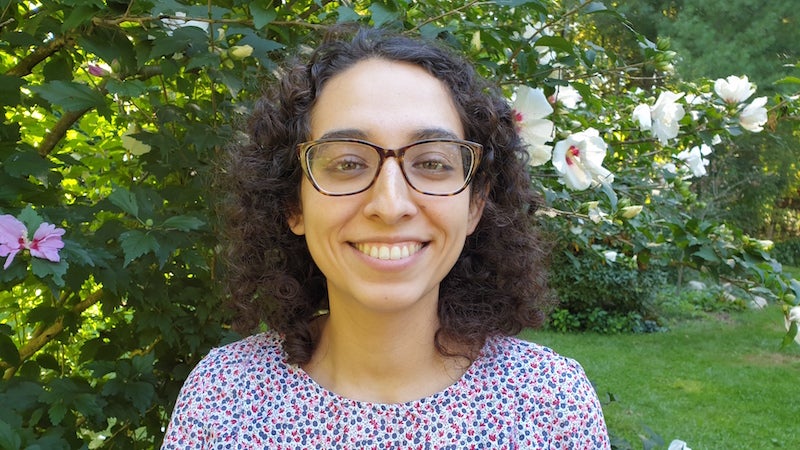I work in the Human Health & Performance Systems Group at MIT Lincoln Laboratory.
My research focuses on auditory attention and the neural encoding of speech.
How would you explain what you do to friends at a cocktail party?
If I were at a cocktail party and had to explain what I do, I would say “It is so cognitively demanding to attend to your voice in this multi-talker scenario! If only I had a cognitively controlled hearing aid that enhances who I cared about and attenuated everyone else. Oh wait, I’m working on that exact issue by studying auditory attention decoding!”
As a member of the Human Health & Performance Systems group at MIT Lincoln Laboratory, I have been studying speech intelligibility and the attention switches a listener performs between concurrent talker streams using machine learning and EEG experiments.

I know how to have fun during a 10:30am workshop break.
What has been one of the most exciting moments in your career so far?
The 3-week Telluride Neuromorphic Cognition Engineering Workshop that I attended this summer has been the best academic experience of my graduate life. One memorable moment was sitting on the Telluride Elementary School’s steps while discussing the best attention switching protocol for our pilot EEG experiment that we were going to collect the next day. I am really excited about the analysis I am doing on the data I collected at the workshop and hope that this can be the foundation of my first first-author paper.
What is the trait you admire most in others?
I admire people who act on the motto “What you do when no one is watching is what matters most”. This was ironed into me when I was part of my youth marathon team (related to the amount of running practice being reflected on race day)—but this motto is applicable to researchers too.
What are your hopes for the future?
I am a proud first- generation, Mexican-American, low-income college student from the community of Boyle Heights in Los Angeles, CA. Given my roots and the opportunities that been provided to me by past and current institutions, I would like to serve as an advocate in the burgeoning neural prosthetics field that newer hearing aids will begin to fall under. To address the disconnect between biomedical innovation, education, and accessibility, I plan to use my platform as a future academic to help develop free public neurological health literacy programs and serve as an advisor in governmental health insurance programs.

